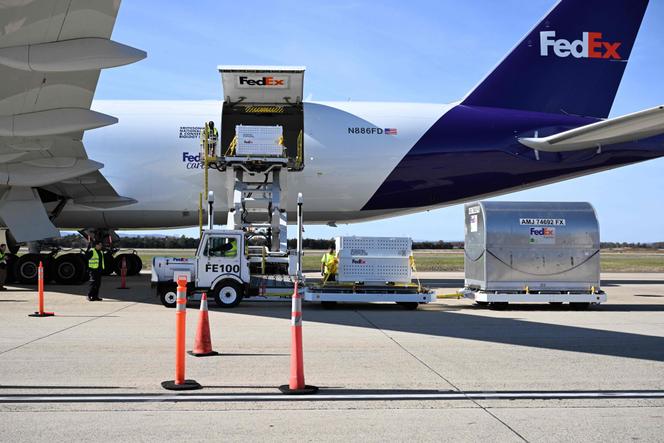


If you live in America, you will now have to travel to Zoo Atlanta (Georgia) to see giant pandas, as ursids on loan from China are leaving the US, as soon their "lease" expires. That is why on Wednesday, November 8, Tian Tian, Mei Xiang, and their 3-year-old offspring Xiao Qi Ji departed Washington by plane back to China, to return to their native country. Their departure was followed by numerous TV channels, filming live the procession of three FedEx trucks carrying the animals, their vets, and a 100-kilo supply of bamboo from the zoo to the airport.
Six months earlier, Ya Ya the panda had left his Memphis (Tennessee) home; By 2019, the San Diego Zoo (California) had had to part with 27-year-old Bai Yun and one of her sons, 6-year-old Xiao Liwu. In Atlanta, the twins Ya Lun and Xi Lun, and their parents Lun Lun and Yang Yang, will be the last of the species present in the United States. But only for a few months: They too will have to return to their native country by the end of 2024.
Emblems of "panda diplomacy," intended to bolster Chinese soft power in post-Cold War America, the plantigrades were only loaned to American zoos as part of an animal conservation program. The bilateral agreement also indicates that any offspring must be sent back to their Chinese home when they reach 3 or 4 years of age, to continue breeding and to support the captive and wild population.
The first giant pandas to arrive in the United States, Ling-Ling and Hsing-Hsing were a gift from the Chinese government to Pat Nixon, wife of President Richard Nixon, architect of the historic opening to China. In 2000, when the mammals died, Beijing sent another pair of pandas to the Washington Zoo, but only for a limited period of ten years and in exchange for a contribution of $10 million. American zoos did not lose out on the deal: From cuddly toys to mugs, to pajamas, and even ice cream... The bamboo-eating ursids were an animal business hit.
With just a few days to go before the November 15 meeting between US President Joe Biden and Chinese President Xi Jinping on the sidelines of the APEC (Asia-Pacific Economic Cooperation) summit in San Francisco, the departure of the pandas – a symbol of the ties maintained against all odds between Beijing and Washington – has raised questions. Experts wondered whether the Chinese decision not to renew agreements with American zoos was a sign of the relations between the governments growing frostier. Kurt Tong, an analyst with Asia Group consultancy and a former diplomat told the Agence France-Presse news agency: "Given the current tenor of US-China relations, it is not surprising that Chinese authorities are allowing panda contracts with US zoos to expire." Experts also noted that several Western allies are facing the same fate: The UK will have to return its pandas by the end of December, and Australia, in 2024.
You have 20% of this article left to read. The rest is for subscribers only.
